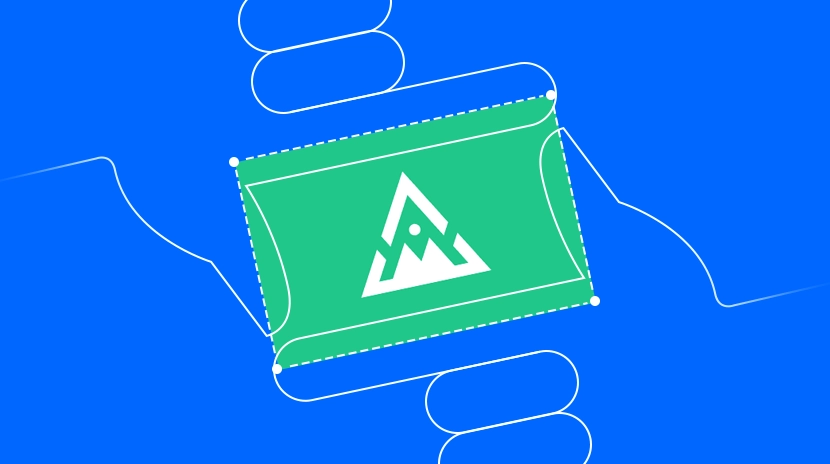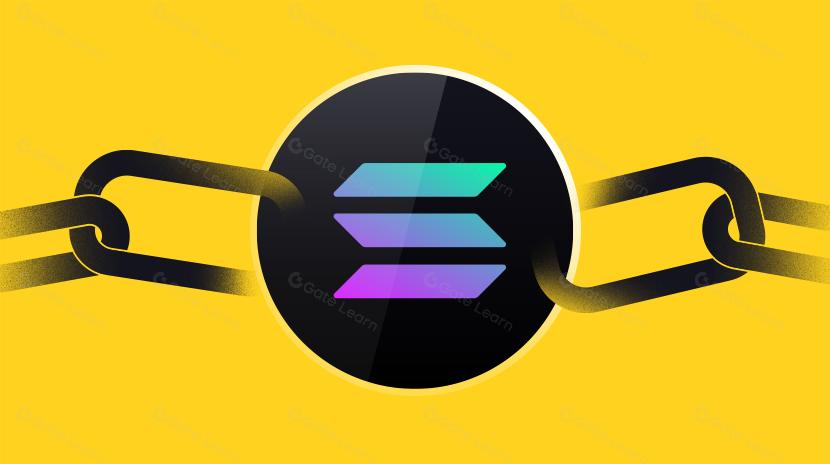What is Navigate (NVG8)?
Introduction
Navigate (NVG8) is a decentralized intelligence platform that allows individuals to earn from the data they generate daily. In the current digital landscape, vast amounts of user-generated data are collected by corporations without compensating the individuals who produce it. Navigate addresses this issue by enabling users, called “Navigators,” to contribute data through its Data Quest application and earn rewards in return. The platform gamifies data collection and annotation, making the process interactive while ensuring privacy and security through anonymization and encryption. Users retain control over the data they share, and their digital avatars evolve based on their contributions.
What is Navigate (NVG8)?
Navigate (NVG8) is a decentralized data-sharing platform that gives users control over their data while creating high-quality datasets for artificial intelligence (AI) applications. It operates as a permissioned data marketplace where contributors voluntarily share their data in exchange for NVG8 token rewards. The goal is to address the challenges associated with data monopolization by providing a transparent, blockchain-based framework where users retain ownership and participate directly in the data economy. Developers and businesses can access structured, high-quality datasets for training AI models without relying on centralized data providers.
The platform’s data contribution system consists of passive and active participation methods. Passive contributors share anonymized browsing activity through the Navigate browser extension, which collects relevant user interactions while preserving privacy. Active contributors participate in structured data labeling and annotation tasks that refine datasets for AI applications. This dual-model ensures a steady influx of diverse and verified data, enabling AI developers to train models with improved accuracy and reduced bias. By decentralizing data collection, Navigate creates an open-source alternative to traditional Web2 data services that often collect user information without consent.
Navigate operates on Base, a Layer 2 blockchain built on Ethereum, allowing for lower transaction fees and faster processing times. The blockchain infrastructure ensures that all data transactions, contributions, and purchases are recorded transparently, verifying dataset ownership and authenticity. This setup enhances trust between data contributors and buyers by eliminating intermediaries that typically control data flows in centralized marketplaces. AI developers benefit from a decentralized marketplace where they can purchase datasets directly from users, ensuring a more ethical and efficient data acquisition process.
History, Team, Investors
Navigate was established in 2022 with the mission to decentralize data collection and reward users for their contributions. The founding team includes Rumi Morales, Director of Investments at Digital Currency Group, and Amir Husain, Founder and CEO of SparkCognition. In February 2025, Ali Husain, one of the co-founders, was appointed as the Chief Executive Officer, bringing his extensive experience in technology and data-driven enterprises to lead the company.
In June 2022, Navigate secured $7.625 million in a seed funding round led by Distributed Global. Other notable investors include Alan Howard, Kraken Ventures, Jez Mohideen, and Outlier Ventures. This financial backing has facilitated the development of Navigate’s platform and the expansion of its services to a broader user base.
Navigate’s platform is built on the Base blockchain, ensuring scalability and security for its users. The native token, NVG8, serves as the medium of exchange within the ecosystem, enabling transactions and rewarding participants for their data contributions. The platform’s architecture supports interoperability, allowing smooth integration with various decentralized applications and services.
To enhance user engagement, Navigate has introduced “Navigators,” digital avatars that represent individual users within the platform. These avatars evolve based on the user’s data habits and contributions, providing a personalized experience. Users can customize their Navigators and track their progress through the Data Quest app, a gamified platform that rewards data contributions with points redeemable within the ecosystem.
Navigate Main Features
Navigator

Navigate is a decentralized data network designed for structured data collection and monetization. It allows users to contribute data actively or passively while maintaining control over how it is shared. The system organizes user-generated data into structured datasets, making them accessible for artificial intelligence training and data-driven applications.
The network operates through a decentralized marketplace where businesses, developers, and researchers can acquire high-quality data. Contributors interact with the system through Navigator Avatars, which visually represent engagement levels and reward accumulation. This model encourages users to continuously contribute data while tracking their progress.
Navigate incorporates a system of personal Data Vaults where users manage their shared information. These vaults provide transparency and allow contributors to adjust their privacy settings while still benefiting from participation.
Governance decisions are made through a community-driven model, where token holders vote on platform updates and data usage policies. This structure ensures that contributors directly influence the ecosystem’s development, keeping incentives aligned with participant interests.
Rewards

Navigate distributes Navigate Points to users who provide data, complete platform tasks, or share approved data streams. These points serve as the primary reward mechanism, compensating contributors based on the quality and quantity of data submitted.
Navigate Points can be redeemed in the Navigate Marketplace for digital goods, platform benefits, and other incentives. This system ensures that data providers receive direct value for their participation rather than having their contributions monetized without compensation.
Rewards follow a tiered structure, where higher engagement levels lead to greater benefits. Navigator Avatars reflect a user’s progress within the system, visually distinguishing different levels of participation.
Certain datasets receive priority rewards based on demand. Contributions like geospatial data, drone footage, or specific sensor outputs may qualify for additional compensation. This system ensures a diverse range of high-quality data is consistently supplied to the network.
G.A.T.E.S

In Data Quest, an MMORPG developed by Navigate, players embark on a journey to uncover the secrets of an alternate Earth dominated by Big Tech corporations. The game introduces players to a world where companies like Sisyphus Technologies control vast amounts of data, offering immersive experiences at the cost of personal information. Players assume the role of Navigators, individuals striving to reclaim control over their data and challenge corporate dominance.
Chapter 1, titled Red Pilled, serves as the game’s introduction, guiding players through the initial steps of their adventure. Upon starting, players select an avatar and find themselves in a personal room designed to familiarize them with the game’s controls and mechanics. The primary controls include arrow importants for movement, ‘A’ for interactions, and ‘Shift’ to run.
The first task involves obtaining a RIG card, located on a table between the RIG device and a purple bookshelf within the room. After acquiring the card, players approach the RIG to access the G.A.T.E.S. (Global Access Terminal for Enhanced Simulations), transitioning into the broader metaverse. This virtual realm showcases futuristic environments, with Sisyphus Technologies promoting their latest immersive device, the GATEWAY. Players are encouraged to explore this main area, noting features like a currently inaccessible shop.
The subsequent objective directs players to a billboard within the main area. Players can either navigate to the right side of the area to locate the billboard or use a teleportation portal by pressing ‘A’. Interacting with the billboard presents a series of ten comments, which players must categorize as PRO-BLUE, PRO-RED, or NEUTRAL. This exercise introduces the game’s decision-making elements and hints at the underlying narrative conflicts.
Navigate’s Technical Architecture
Blockchain Integration
Navigate is built on a blockchain-based infrastructure that ensures secure and transparent data transactions. Every data contribution, exchange, and interaction is recorded on a decentralized ledger, preventing tampering and unauthorized modifications. Smart contracts automate data validation, licensing, and payments, allowing transactions without intermediaries.
The blockchain framework supports a decentralized ecosystem where data providers retain control over their contributions. Consumers can verify the authenticity of datasets before using them. This structure removes reliance on centralized data brokers, enabling direct interactions between contributors and users.
Data Contribution Mechanisms
Navigate supports both active and passive data contributions. Active contributions require users to submit specific datasets, participate in surveys, or perform labeling tasks. These contributions are verified for quality before being rewarded. Passive contributions occur through automated data collection tools, such as the Navigate Data Quest browser extension, which gathers anonymized user behavior insights with consent.
Users retain control over their data and can manage permissions within their accounts. Navigate ensures privacy by allowing contributors to define how their data is accessible. The system prevents unauthorized sharing and maintains ethical standards for data use.
Decentralized Data Marketplace
Navigate includes a marketplace where businesses, developers, and researchers can access datasets. Consumers acquire datasets directly from contributors instead of relying on centralized data providers. Transactions occur through smart contracts, which enforce licensing terms and automate payments.
The marketplace promotes transparency by allowing buyers to verify data authenticity before purchase. Contributors receive fair compensation without the need for intermediaries. Reputation mechanisms help assess the reliability of data providers, ensuring that quality standards are maintained across the marketplace.
Community-Driven Governance
Navigate operates under a decentralized governance model where token holders vote on platform upgrades, incentive structures, and policy changes. Governance decisions are made through a structured proposal and voting process, ensuring the community influences the platform’s evolution.
Participants can submit improvement proposals and engage in discussions before voting. The system prevents centralized control, distributing decision-making power among contributors and users.
Scalability and Performance
Navigate uses a hybrid architecture that balances on-chain and off-chain processing. Blockchain transactions handle data verification and payments, while large datasets are stored off-chain to prevent congestion. This approach maintains high throughput without sacrificing security.
The infrastructure supports high-frequency data transactions, ensuring that contributors and consumers can exchange information without delays. The system dynamically allocates resources to accommodate growing user activity, maintaining performance under increasing demand.
Security Measures
Navigate incorporates multiple security layers to protect data integrity and user assets. Cryptographic encryption secures transactions, preventing unauthorized modifications. Smart contract logic enforces compliance with platform rules, reducing fraud risks.
Security audits and real-time monitoring detect vulnerabilities before exploitation. Navigate also implements a bug bounty program, incentivizing researchers to identify potential weaknesses. These measures reinforce the platform’s reliability, ensuring a safe data exchange and monetization environment.
What is the (NVG8) Token?
NVG8 Token Utility
Within the Navigate platform, NVG8 tokens are used to reward users for their data contributions. Participants earn tokens by sharing data through the Data Quest application or by completing specific tasks that enhance the platform’s data repository. These tokens can be redeemed for various benefits within the ecosystem, such as accessing premium features or obtaining digital goods.
NVG8 tokens also allow holders to participate in the platform’s governance. Token holders can propose and vote on changes to the platform, influencing decisions related to development priorities, reward structures, and data usage policies.
NVG8 Supply and Allocation

The total supply of NVG8 tokens is allocated across different categories to ensure long-term sustainability and support various aspects of the Navigate ecosystem. The distribution strategy balances incentives for users, contributors, and investors while maintaining liquidity and funding platform development.
Community Rewards (50%)
Half of the total NVG8 token supply is allocated for community rewards. This allocation is designed to incentivize user participation and engagement within the Navigate ecosystem. Users earn tokens by contributing data, completing tasks, and participating in governance. The allocation ensures that a significant portion of tokens is directed toward growing the user base and fostering an active community.Foundation, Ecosystem & Liquidity (20.3%)
A portion of the tokens is reserved for the foundation, ecosystem development, and liquidity management. These funds are used to support ongoing platform improvements, research, and partnerships. The liquidity provision ensures that NVG8 tokens remain accessible for trading and transactions across different platforms. This allocation helps sustain the project’s operational needs and facilitates ecosystem expansion.Team, Advisors & Partners (17%)
A percentage of tokens is set aside for the Navigate team, advisors, and partners. This allocation compensates contributors involved in building and maintaining the platform. The distribution is structured with vesting schedules to align incentives with long-term project success. Advisors and strategic partners receive a share of this allocation to support Navigate’s growth and integration with other blockchain applications.Seed Round (12.7%)
The seed round allocation is designated for early investors who provided initial funding for the development of Navigate. These investors supported the project’s early-stage growth and technological advancements. Their tokens are subject to vesting schedules to prevent market disruptions and encourage long-term commitment to the platform.
NVG8 Vesting Schedule
(PRINT)
Navigate implements a vesting schedule for certain token allocations to promote long-term commitment and prevent market oversupply. Tokens designated for the development team and early investors are subject to a lock-up period, during which they cannot be sold or transferred. This period aligns the interests of the team and investors with the platform’s success, as their ability to access these tokens is contingent on the project’s ongoing development and performance.
The vesting schedule typically releases tokens gradually over a predetermined timeframe. For example, tokens may be released monthly or quarterly over several years. This approach mitigates the risk of large token dumps that could negatively impact the token’s market value.
Navigate’s Economic Design
Navigate’s economic model is structured to create a self-sustaining ecosystem that rewards participants while ensuring the platform’s longevity. The fixed token supply introduces scarcity, which can enhance the token’s value as demand within the ecosystem grows. Incentive mechanisms are designed to encourage continuous user engagement, with rewards distributed based on the quality and quantity of data contributions.
Transaction fees within the platform are denominated in NVG8 tokens, creating a consistent demand for the token as users interact with various services. A portion of these fees may be burned or redistributed to token holders, implementing deflationary measures that can further support token value.
Navigate’s Concerns and Risks
NVG8 is currently listed on a limited number of exchanges, such as Gate.com, KuCoin, and BloFin. The trading volumes, while active, remain relatively modest. For instance, as of late March 2025, the 24-hour trading volume for NVG8 was around $210,000 on CoinMarketCap and lower on individual exchanges like Gate.com. Such levels of liquidity can result in price slippage and make it difficult for large holders to enter or exit positions without affecting market prices .
Regulatory uncertainty is another issue that could impact the platform’s future. As data privacy regulations evolve globally—including the enforcement of the EU’s GDPR or similar frameworks in the U.S. and Asia—Navigate may face increased scrutiny. Its tokenized rewards for user data and decentralized marketplace could attract legal challenges concerning user consent, cross-border data transfers, or the classification of NVG8 as a security token in some jurisdictions.
Navigate’s Future Prospects and Technological Roadmap
- Navicom Node Launch (Q2 2025): Scheduled for the second quarter of 2025, the introduction of the Navicom Node aims to decentralize data collection further, empowering users with greater control over their data contributions.
- Zero-Knowledge Proof Integration (Q4 2025): By the fourth quarter of 2025, Navigate plans to incorporate zero-knowledge proofs (ZKPs) to bolster transaction privacy and security. ZKPs will enable the verification of data transactions without disclosing underlying information, enhancing confidentiality within the platform.
- Quantum-Resistant Cryptography (2026): In anticipation of advancements in quantum computing, Navigate intends to implement quantum-resistant cryptographic algorithms by 2026. This proactive measure safeguards the platform against potential quantum-based threats, ensuring long-term data security.
Conclusion
Navigate introduces a decentralized approach to data ownership, enabling users to contribute, control, and monetize their information while supporting AI development. The platform’s structure ensures transparent data exchange, rewarding participants through NVG8 tokens. By integrating a permissioned data marketplace, gamified contributions, and blockchain-based governance, Navigate addresses challenges related to centralized data monopolization. Its technical infrastructure ensures security, privacy, and scalability while maintaining accessibility for data providers and consumers. The platform fosters sustained user engagement and long-term adoption through its economic design and incentive mechanisms.
Related Articles

In-depth Explanation of Yala: Building a Modular DeFi Yield Aggregator with $YU Stablecoin as a Medium

The Future of Cross-Chain Bridges: Full-Chain Interoperability Becomes Inevitable, Liquidity Bridges Will Decline

Solana Need L2s And Appchains?

Sui: How are users leveraging its speed, security, & scalability?

Navigating the Zero Knowledge Landscape


